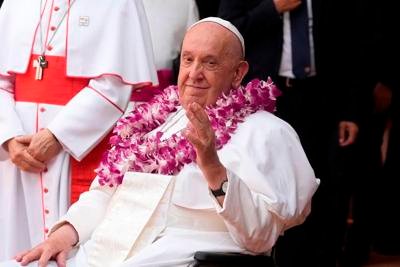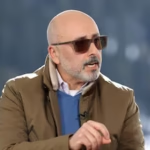Pope Francis, history’s first Latin American pontiff, died after a severe respiratory crisis on Monday. He was 88.
“At 7:35 this morning, the Bishop of Rome, Francis, returned to the home of the Father. His entire life was dedicated to the service of the Lord and of his Church,” Cardinal Kevin Ferrell, the Vatican camerlengo, said in an announcement.
Here’s all you need to know about Pope Francis
- Jorge Mario Bergoglio, born in Argentina, was elected as the new head of the papacy on March 13, 2013, after Pope Benedict XVI‘s decision to resign and retire — the first in 600 years.
- Pope Francis was like a breath of fresh air into a 2,000-year-old institution, and his humble style and concern for the poor had won over the world.
- From his first greeting as pope — a remarkably normal “Buonasera” (Good evening) — to his embrace of refugees and the downtrodden, Pope Francis signalled a very different tone for the papacy.
- Francis was also the first to name himself after St. Francis of Assisi, the 13th century friar known for personal simplicity, a message of peace, and care for nature and society’s outcasts.
- Francis sought out the unemployed, the sick, the disabled and the homeless. He formally apologised to Indigenous peoples for the crimes of the church from colonial times onward.
- He stressed humility over hubris for a Catholic Church beset by scandal and accusations of indifference. However, his critiques of capitalism and climate change alienated the conservatives, which soon led him to troubles of his own.
- Conservatives grew increasingly upset with his progressive bent, outreach to LGBTQ Catholics and crackdown on traditionalists. “Who am I to judge?” he replied when asked about a purportedly gay priest. “Being homosexual is not a crime,” he told The Associated Press in 2023, urging an end to civil laws that criminalise it.
- Stressing mercy, Francis changed the church’s position on the death penalty, calling it inadmissible in all circumstances. He also declared the possession of nuclear weapons, not just their use, was “immoral.”
- In other firsts, he approved an agreement with China over bishop nominations that had vexed the Vatican for decades, met the Russian patriarch and charted new relations with the Muslim world by visiting the Arabian Peninsula and Iraq.
- He reaffirmed the all-male, celibate priesthood and upheld the church’s opposition to abortion, equating it to “hiring a hitman to solve a problem.”
- But he added women to important decision-making roles and allowed them to serve as lectors and acolytes in parishes. He let women vote alongside bishops in periodic Vatican meetings, following longstanding complaints that women do much of the church’s work but are barred from power.
- Migrants, the poor, prisoners and outcasts were invited to his table far more than presidents or powerful CEOs.
- “For Pope Francis, it was always to extend the arms of the church to embrace all people, not to exclude anyone,” said Cardinal Kevin Farrell, whom Francis named as camerlengo, taking charge after a pontiff’s death or retirement.
- Francis demanded his bishops apply mercy and charity to their flocks, pressed the world to protect God’s creation from climate disaster, and challenged countries to welcome those fleeing war, poverty and oppression.
- After visiting Mexico in 2016, Francis said of then-US presidential candidate Donald Trump that anyone building a wall to keep migrants out “is not Christian.”



